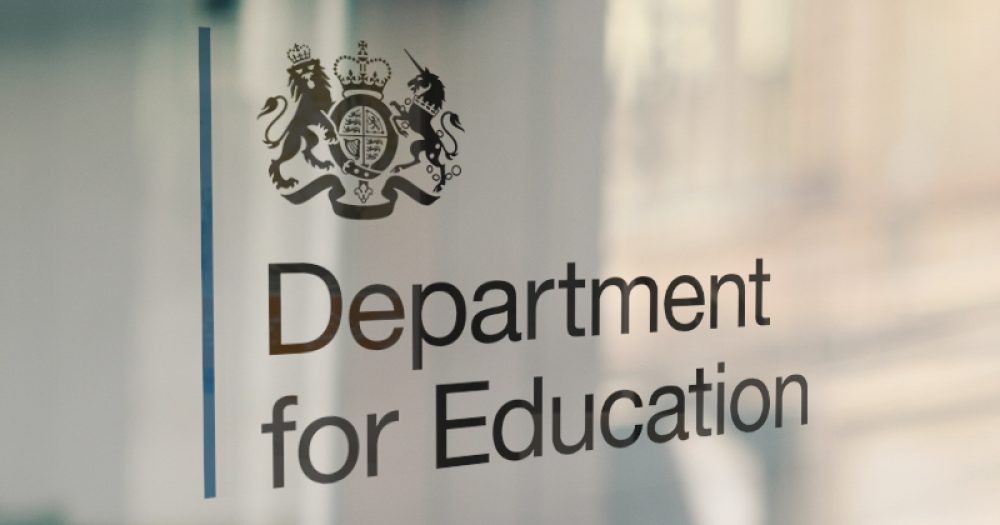Academics and journalists have been ordered to give civil servants two days to look over any research they plan to publish from the national pupil database in a move that some fear will shut down rapid scrutiny of government policy.
Researchers were informed yesterday that any analysis produced using statistics from the national pupil database (NPD) must be shared with department officials 48 hours before publication.
The department said the change would ensure policy officials and press officers are not “caught off guard” when data is published.
But the move has been criticised by academics and journalists who say it will shut down rapid scrutiny.
Publications by organisations like Education Datalab and the Education Policy Institute, quickly turned around after the government announced its intention to remove grammar schools, were awkward for the government as they cast doubt on claims the policy would improve social mobility.
Data analysis from both organisations were also particularly widely reported in the media and both made use of the national pupil database.
The idea I can give 48 hours’ notice is unworkable
Professor Stephen Gorard, from the school of education at Durham University, also noted problems for academics who are not abreast of publication timeframes.
He said: “The idea I can give 48 hours’ notice is unworkable. It doesn’t fit in with academic publishing, where we genuinely don’t know 48 hours in advance is something is being published.
“I feel under pressure from this directive that if we don’t do what they say we won’t get it in the future, and I need this for my job.”
The NPD contains data from almost 20 million pupils and is accessible to businesses and researchers by request, though there are strict conditions on what is released to preserve anonymity.
The DfE, in an email to researchers yesterday, said the change will “ensure consistency across our user community”.
The email added: “It will ensure that relevant policy teams and press office are aware of the valuable research that you carry out based on DfE data.
“This will reduce the risk that DfE are caught off guard by being asked to provide statements about research the appropriate people have not seen.”
Researchers were told it is “not the DfE’s role to check or approve the outcomes”, but that “the right people have had time to digest it”.
Applicants will have to commit to following the new rules, or face not being approved to access the data.
If they receive the data and do not follow the new condition, they are unlikely to be approved to access data again or could be told to delete their post, Schools Week has been told.
Data journalists regularly using the NPD and working to daily deadlines have expressed concern.
Megan Lucero, data journalism editor at The Times, tweeted that the policy “threatens journalistic practice and integrity”.
While Chris Cook, a BBC journalist who first tweeted about the changes after receiving the DfE email, added: “The department has for six years made it harder and harder to get access to data. It wasn’t that long ago that [the DfE] was promising to open up its data.”
https://twitter.com/xtophercook/status/784042765197910016
Over the past four years the department actively sought to open up use of the NPD data by cutting down the “cumbersome” application process and running events encouraging people to learn how to use it.
It’s not clear what has prompted the change in approach under Justine Greening but some fear the department will use the advance sightings of research to run a “rapid rebuttal unit” similar to one started by the Department of Health in 1999 under New Labour after criticism of its private financial incentives (PFI).
According to Allyson Pollock, professor of public health research and policy at Queen Mary University of London, health department would send press releases whenever a negative analysis was published.
The release would claim the research was wrong or that its researchers had misunderstood an issue.
A DfE spokesperson said: “We now ask that all research and analysis based on access to the National Pupil Database is shared with us 48 hours in advance of its publication to ensure that no breaches of protocol such as confidentiality have occurred. This will not adversely affect anyone using the database according to the terms of their access.”



This is a ruse to save the Government from embarrassment if its own data contradicts the party line. Requesting 48 hours to read research based on the National Pupil Database gives the Government time to get its rebuttal in first or, worse, could act as a form of closing down debate. Researchers might be fearful of producing analysis of NPD data which debunks Government claims because they could lose their permission to use the data. This could result in self censorship.
Since as one academic said: “He said: “The idea I can give 48 hours’ notice is unworkable. It doesn’t fit in with academic publishing, where we genuinely don’t know 48 hours in advance is something is being published.”
This appears to be a method of pre-empting study of the statistics – Therefore what the Gov’t tells you cannot be contested.
What evidence is there that breaches have occurred? This sounds disingenuous to me!
I wouldn’t worry about it. The DfE respond at best by season. Also, just submit on a Friday after about 2pm, publish Sunday with the sunday papers, they will have probably gone home by then anyway. (no really)
Publish on Monday, send data for review on Saturday…
According to Dominic Cummings they all work flexi-time and have Friday off. Send Thursday night.
Time to start publishing everything on a Monday.
I think we should shift responsibility to the publishers.